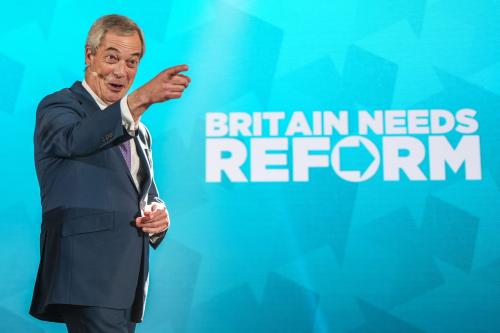AT LAST WEEK’S summit in Crawford, Texas, George W. Bush and Vladimir Putin got along famously—and appeared determined to set their countries on a new, cooperative path. But for all the bonhomie, Crawford will be remembered not as a new beginning but as a missed opportunity.
Crawford was where Bush and Putin were supposed to agree to deep cuts in offensive nuclear forces, forge a new consensus on missile defense, and commit to intensified efforts to stem the spread of weapons of mass destruction. But it failed on all three scores.
The first missed opportunity involved the summit’s one widely heralded triumph—the agreement to slash each side’s strategic nuclear weapons. There is much less to this “deal” than meets the eye.
Although Putin promised to reduce Russian strategic forces, he never said by how much or by when. He merely declared that Moscow was “ready to make deep cuts of strategic armaments.” When Putin will provide specifics, and whether Washington will find them to its liking, remains to be seen.
Bush was specific. He said he would reduce U.S. forces over the next decade from the current level of 7,000 warheads to between 1,700 and 2,200 weapons. No sooner had Bush announced this cut than senior administration officials said privately that the numbers might go higher if world events “necessitate a change in our thinking.” That explains why Bush is only proposing to remove warheads from operational launchers—not to destroy them.
Bush’s cuts also do not go far enough. He is actually proposing only slightly deeper cuts than the 2,000-to-2,500 range that Bill Clinton proposed four years ago. Even then, Bush got his lower numbers only by changing the standard rules for counting nuclear weapons. The Clinton Pentagon generated its numbers based on the belief that the United States needed to retain a robust force capable of destroying Russia’s economic and military infrastructure. But if, as Bush said last week, “Russia is no longer our enemy,” why should that presumption continue to drive U.S. nuclear-weapons planning?
The second missed opportunity came on missile defense. On the eve of the summit, a deal looked imminent. Moscow signaled that it would give Bush what he wanted—much greater freedom to test new defensive technologies—provided that he agree for the time being not to withdraw from the Anti-Ballistic Missile Treaty.
Such a deal would clearly serve U.S. interests. The Pentagon would be free to conduct the testing needed to build a working anti-missile system. And because defensive technologies are still years away from being ready for deployment, leaving the ABM Treaty’s ban on building national defenses intact for now would cause the United States no harm.
But no deal was struck. The stumbling block appears to have been whether to codify the deal. Putin wanted a binding deal; Bush wanted a handshake.
This setback pushes Bush closer to the point of unilaterally withdrawing the United States from the ABM Treaty. The Pentagon has been saying for weeks that it will soon bump up against the treaty’s limits on defensive testing. But if Washington withdraws, it will greatly strain the new alliance it has forged with Moscow since Sept. 11.
The third missed opportunity came on stopping the spread of weapons of mass destruction. In the days preceding the summit, Russian officials admitted that terrorists had tried to break into Russian nuclear facilities. Osama bin Laden also claimed to have nuclear weapons. But the topic of securing Russia’s nuclear facilities barely came up.
This failure could have grave consequences. Because Russia inherited large amounts of nuclear, chemical and biological weapons material from the Soviet Union, most of it poorly secured, it is the target of opportunity for terrorists. Yet the Bush administration has shown little interest in heeding the advice of blue ribbon panels that have urged Washington to intensify its efforts to help secure Russia’s decaying arsenal.
While Bush said yet again last week that the Cold War is over, his approach to nuclear strategy remains mired in Cold War thinking. It saddles us with far more nuclear weapons than we need, fails to find creative solutions to our disagreements with Moscow on missile defense, and underestimates that threat posed by terrorists looking to get weapons of mass destruction.
Let’s hope that by the time Bush and Putin next meet, presidential joshing in Red Square can produce substantive results in each of these three areas.
The Brookings Institution is committed to quality, independence, and impact.
We are supported by a diverse array of funders. In line with our values and policies, each Brookings publication represents the sole views of its author(s).



Commentary
Op-edBush Must Melt His Cold War Mentality
November 20, 2001